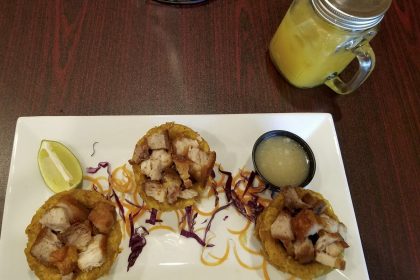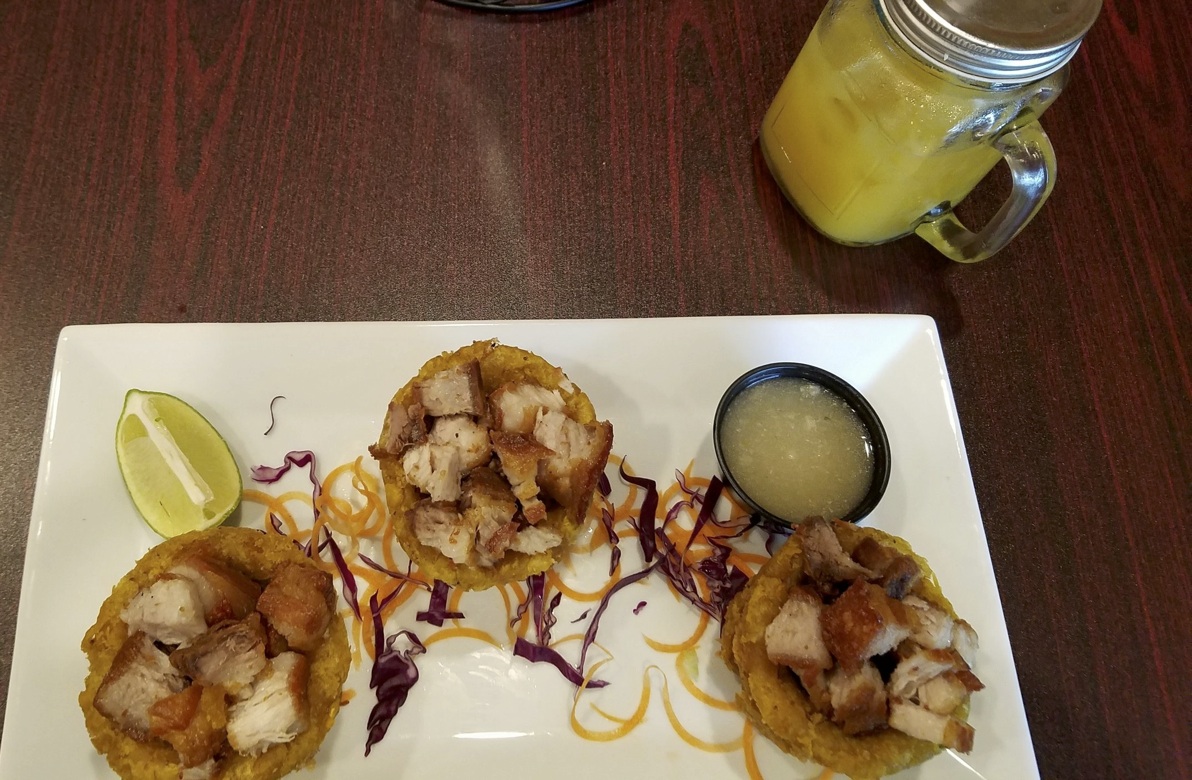
I am guilty.
I am guilty of drinking fair trade and organic coffee out of mason jars.
I am guilty of supporting farm-to-table restaurants owned by white folks in communities of color.
I am guilty of being one of the few people of color at the farmer’s markets while the other patrons stare at my Afro-Latina looks in disbelief that I can afford and want to buy fresh produce.
I am guilty of being the only women of color at brunch at a farm-to-table restaurant in the West End.
I am guilty of being a food systems practitioner, food studies aficionado, and food justice advocate of color.
More often than before I feel the weight of these identity conflicts with my food systems values. The double-edged sword: I want to be a conscious consumer and enjoy farm-to-table eateries, but I am always the only person or one of the few people of color in these spaces. As a Rhode Island resident, I have access to both farm-to-table restaurants and markets, and a large selection of minority owned restaurants, bakeries and markets that serve the over 13% of Rhode Islanders that are foreign born. Nevertheless, most of these former aforementioned establishments (trendy amount locavores, vegans, vegetarians) in the Providence local food scene are driving gentrification in former communities of color and immigrants. I won’t deny that a stroll on Broadway to visit The Grange, Julians, Nicks on Broadway, or Seven Stars Bakery maybe makes me a tool of gentrification in a neighborhood that recently looked differently. I will tell you that over a year ago, probably the last Latino owned business closed on this street (La Tienda, a Guatemalan gift shop), replaced by a bike shop/coffee shop and now this neighborhood is becoming known as hipster central. There is still a hair products store serving mostly African Americans and African-immigrants left in this street.
In the local good food movement, sometimes we forget that communities of color and immigrants are on the frontlines – being more directly impacted by food insecurity, food apartheid, lack of access to culturally appropriate foods, and national food policy that affects their interaction with the food system. Nevertheless, these communities, my community, are the pioneers of these movements in our home countries and with our ancestral knowledge and are walking our talk and being in touch with our food, a cornerstone of our cuisines and culture. We don’t need outsiders to our community and our culture to remind us. Most of the time, immigrants and minority own food businesses need the capital and social resources to create the models that better and more culturally appropriately serve our community members. We need more people of color, minorities and immigrants as the face of our food scene in Rhode Island and beyond, not just in the back growing our food, washing our dishes, and serving our food.
Every day, I am more disappointed by how food and food systems projects are gentrifying our communities nationwide. From a “wannabe Tex-Mex” place to a library/bar without social justice books or Spanish language books in a mostly Spanish speaking neighborhood, to a community garden without one person of color. Once, on a Saturday morning looking for brunch places in Providence, I heard a friend say “x” city or “x” neighborhood needs gentrification. Speechless as I was, I reminded myself that this is the same friend that every time I invited to a Latino restaurant, they were disappointed. I believe individuals of the dominant culture group want authentic food without navigating and understanding the culture, history, and the values it is coming from.
After a stroll, we realize that the usual Broadway’s brunch eateries are packed. I suggest a farm-to-table place on Valley Street. Across from the refurbished mill where it sits, I notice a panaderia or bakery and restaurant, maybe Salvadoran or Mexican. I would like to go there instead, but I cannot suggest this to my white friend. The place might not be neat enough for them, the servers might not speak English or get their order right, service might not be fast enough, food might be too simple, or whatever and so on are the possibilities for an aberration to happen. As a proud Dominican immigrant woman, I want to share my culture, foodways, and history with friends and colleagues, but sometimes I am afraid of it. Or worse, something that is culturally normal will be a complete disappointment for others. It will be embarrassing. It will be frustrating. It will require ridiculous amount of emotional labor to take every disappointment look and expression and it still love and respect that friend. That explains why I barely invite friends and colleagues to the many Dominican restaurants and eateries in the Greater Providence area.
 Right now, I do not know of any eatery that is minority-owned and has the local farm-to-table values, but I do know minority-owned businesses that are prideful about the food they are serving to their community and the quality of their products. Somedays, I daydream of opening a farm-to-table restaurant/bodega/library full of all things Dominican and Latinx pride on Broad Street, Providence, RI. Until I have the courage and the resources for that, I invite you to celebrate our food system by not only supporting our local farmers and farm-to-table restaurants but our minority farmers and minority own market and restaurants that are consistently marginalized and not included in our food systems conversations. A New England Food Vision assumes that whatever their total numbers, new waves of immigrants will continue to add ethnic diversity to the region—and its food—as they have in the past. Rhode Island is not only Italian food on Federal Hill; it is so much more.
Right now, I do not know of any eatery that is minority-owned and has the local farm-to-table values, but I do know minority-owned businesses that are prideful about the food they are serving to their community and the quality of their products. Somedays, I daydream of opening a farm-to-table restaurant/bodega/library full of all things Dominican and Latinx pride on Broad Street, Providence, RI. Until I have the courage and the resources for that, I invite you to celebrate our food system by not only supporting our local farmers and farm-to-table restaurants but our minority farmers and minority own market and restaurants that are consistently marginalized and not included in our food systems conversations. A New England Food Vision assumes that whatever their total numbers, new waves of immigrants will continue to add ethnic diversity to the region—and its food—as they have in the past. Rhode Island is not only Italian food on Federal Hill; it is so much more.
P.S. My favorite list for RI Latino restaurants, bakeries and markets is from RI Latino Arts.
Vanessa Garcia Polanco is a visionary and servant leader Dominican immigrant based in Rhode Island. She is passionate about immigrants, the environment, food systems and food culture. Vanessa is a 2017 Network Leadership Institute Participant. Follow more from her @vgpvisions.
Photo: Mofongitos or Mofongo Cups at Parkview Bakery Cafe, 1228 Broad St, Providence, RI 02905, a new Mofongo version of the traditional mashed, fried plantains and fried pork belly. New businesses are trying to showcase a more modern and upscale approach to Dominican food in Providence.




